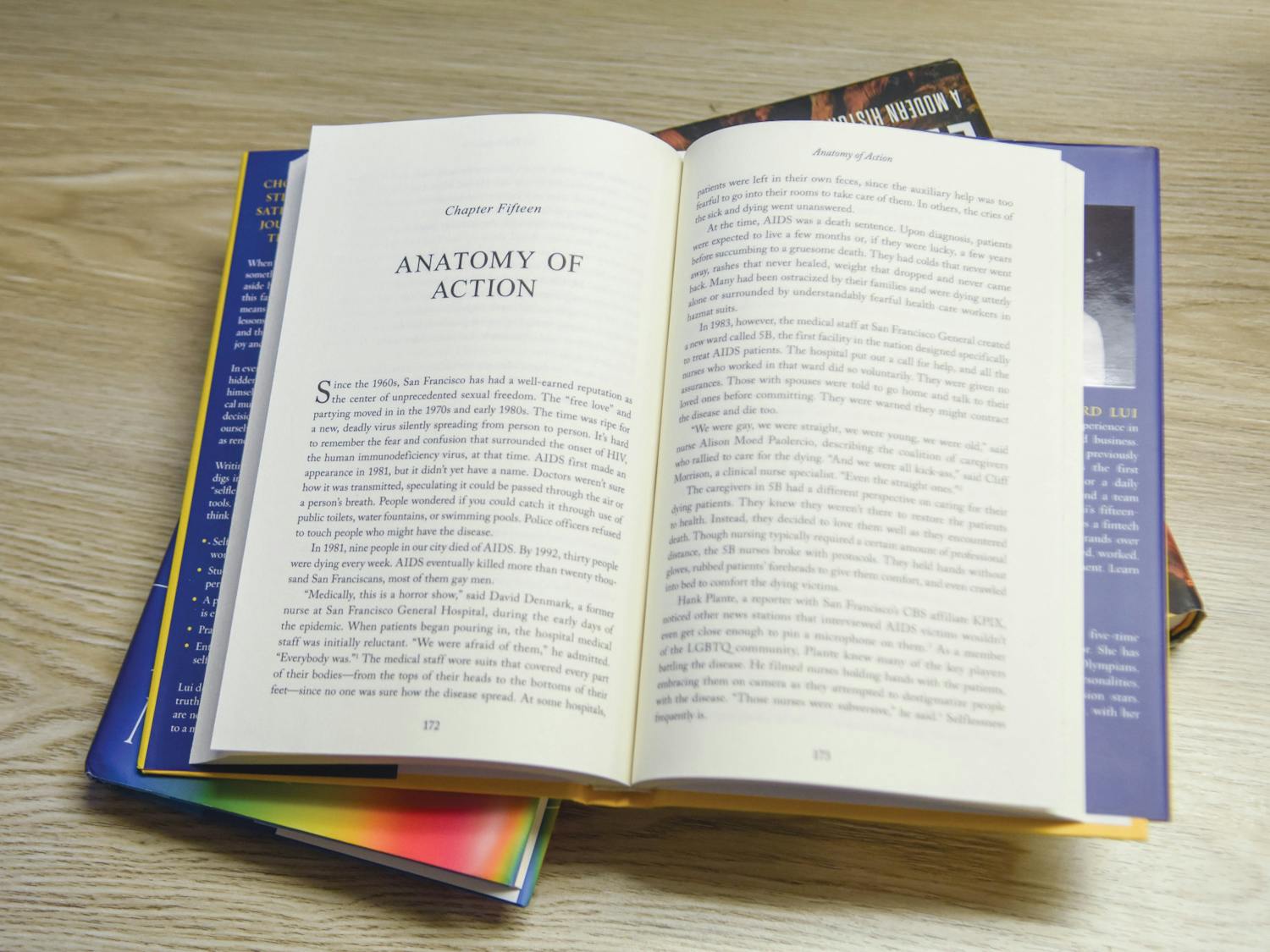As a Penngineer, I've been prejudged as a socially awkward Asian who's good at math but inept at the English language. This stereotype is almost true: I'm actually not very good at math.
Self-mockery aside, I find that the typecasting of engineers as poor speakers and writers manifests a common tendency to create a divide between the arts and sciences. Even the name "College of Arts and Sciences" presupposes a separation between these two general fields of study.
This universal dichotomy of academics carries some truth. The very nature of "majoring" in college requires a trade-off of some subjects for others.
This fact can help rationalize science majors' supposed difficulties in subjects such as English. However, there may be an oasis for illiterate science majors in the desert of liberal arts: poetry.
"Engineering poetry" sounds oxymoronic, but Wayne Clough, president of Georgia Tech and a civil engineering Ph.D., believes otherwise.
"The pursuit of science and technology is just as creative a process as poetry and the arts," Clough told the Atlanta Journal-Constitution in 2006.
"Both require intensely creative people who can think outside the box, look at the same things everyone else sees and imagine something more, and put the pieces together in new ways."
In this spirit, Georgia Tech instituted the Poetry at Tech program in 2001, which features workshops and courses for aspiring poets in a community of scientists.
"We're trying to diminish the stereotype of the poet as some dreamy bozo who wanders around and then all of a sudden gets struck by inspiration," Thomas Lux, director of the Poetry at Tech program, told the Constitution.
"Poems are made things. They have everything to do with intense emotions...They don't just happen."
Michigan State University has also caught onto the poetry trend. For Engineering E-week, MSU's College of Engineering hosts an annual poetry competition. I know what you're thinking:
Hemato-Haikus?
Oh, you silly engineers!
Do some problem sets.
Or should they? I found some undeniable parallels between engineering and poetry. Just as engineers have limited building materials to make a device, poets abide by syllabic constraints when maintaining beat and meter.
When poets use figures of repetition like chiasmus or synchysis, they're demonstrating a value for symmetry and order that is equally applicable to engineering design aesthetics.
When analyzing a poem, finding connections between literary devices for overall thematic effect is much like deciphering the function of an electric circuit.
Still not convinced? There might be some innate defense mechanisms in poetry for science majors who don't speak perfect English.
Take, for example, this grammatically "incorrect" statement: "I live in United State of America." In a term paper, this sentence would be missing a "the" before "United" and an "s" to form a plural. Grade: F.
In a poem, the writer could be making a statement about the American "state" of living by intentionally omitting the "s" from "States." Perhaps the writer is expressing a political opinion about the federal-state balance of power. It could mean both. This must be why "United" lacks a preceding article: What brilliant ambiguity! Grade: A+.
Is the sentence full of typos or meaningful grammatical deviations? I won't tell if you won't.
Whether exercising their strengths or jokingly hiding their weaknesses, science majors can benefit from poetry as a subject of study.
Penn Engineering has already taken great steps to improve the communication skills of its students. The recently created Engineering Information and Communication Program offers individual mentoring and courses to engineering students who wish to improve their English writing skills.
The program is also working with professors to develop writing and information-literacy components in courses in every SEAS department.
Perhaps SEAS can take an idea or two from other engineering schools to complement the EIC Program.
According to the University of Michigan's Web site, the school holds an endowed annual poetry competition for engineering students as well as an annual award for the student who "most clearly combines the highest standards of technical communication with technical excellence."
A value for poetry has been wholeheartedly adopted by other technical schools. At Penn, poetry might be a great finishing touch to a scientific education.
Ted Gomez is an Engineering and Wharton senior from Beverly Hills, Calif. His e-mail address is gomez@dailypennsylvanian.com. Please, Call Me Ted appears on Mondays.








